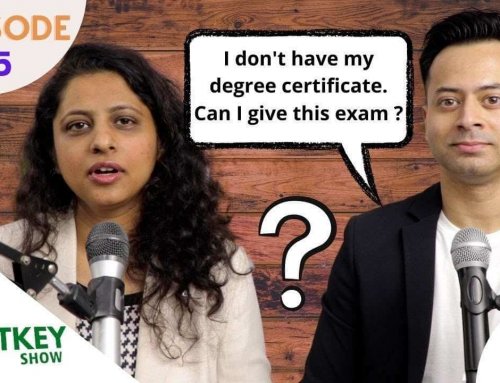The Washington Redskins are entangled in a trademark battle over its name and is urging the Supreme Court to hear its case. The football team disagrees about the offensiveness of the name and contests the constitutionality of Section 2 (a) of the Lanham Act which bans trademarks that are “disparaging.” Under the act, the government cancelled the Redskins trademarks after 23 years. The Lanham Act was also the basis for the government’s refusal to register the trademark of the Asian-American rock band the “Slants.” However, in the high profile case Tam v. Lee, the Federal Circuit held that the ban on disparaging marks violates the First Amendment.
The Supreme Court will soon decide whether it will hear the case of the Slants and the Redskins wish to be involved in that case.In its reply to the government’s urge against the case being heard by the Supreme Court, the team contends that an initial refusal of a patent is less damaging than a cancellation of twenty year old trademarks. The Redskins characterized the cancellation as a forced name change of an adult and compared it to the cancellation of a hypothetical birth certificate of a 23-year-old named Joe Redskins. The team argues that a forced name change would be “a massive disruption to settled expectations that flows from cancellation” which “affects the owners of all 2 million registrations.” Therefore, according to the Redskins, a cancellation after two decades creates a greater burden than an initial refusal like the Tam case. Thus, the Redskins maintain, a cancellation issue touches an important legal question that is not addressed in the Tam case on appeal and therefore merit review by the Supreme Court. Encouraged by the Tam ruling, the team argues in its reply “nine in 10 Native Americans say they are not offended by the Washington Redskins name.” Furthermore, “
[a] 2004 poll by Annenberg Public Policy Center found the same result,” according to the Redskins. The team is displeased with the idea that “the PTO may cancel 50- or even 500 year old registrations even if every shred of evidence has been lost and every witness is dead.”
The team reasons that “the government’s dangerously expansive view of its cancellation power only highlights that this issue should be front and center when this Court decides the First Amendment question.” Additionally, the team argues that the Supreme Court should consider whether a §2 (a) is too vague and whether cancellation triggers procedural due process if delay has caused prejudice and because of the contrast in courts the Supreme Court should take up the case. n a separate matter, the justices will decide whether the trademark law violates the First Amendment. The Supreme Court simply denied review of the team’s appeal in advance of its normal route through the Circuit Court. The brief order said nothing about the legal issue in that case. Last Thursday, however, the Court agreed to rule on the constitutionality of the federal law that denies trademark protection to names or symbols that “disparage” someone; the outcome of that review could resolve the Redskins dispute.The granted case involves a rock band that sought a trademark for its name, the SLANTS, but that was denied by the Patent and Trademark Office. The Redskins case differs in that it involved revocation of already existing trademarks, rather than an initial denial.
A special federal appeals court that handles patent and trademark cases has ruled in the rock band case that the law violates the free speech rights guaranteed by the First Amendment. If the Justices uphold that result, the Redskins’ controversial name would remain legally protected. The team could continue to use it even without trademarks, but those provide special economic and legal advantages.Among the very long list of denials of review of new cases that had reached the Court in recent months, the Justices refused to be drawn into the ongoing controversy over whether players in big-time college sports should be paid a salary or its equivalent. The Court turned down an appeal by the National Collegiate Athletic Association, protesting a ruling that its ban on compensation for college athletes violates federal antitrust law, and a separate appeal by a group of former star athletes in football and basketball, challenging a denial of compensation beyond full tuition and fees while attending colleges.
As usual, the Court gave no reason for the denials.Last Thursday, before the formal start of the new Term, the Justices granted review of eight new cases. On Monday, they agreed to decide another dispute, a high-stakes feud between a number of states over which state has a legal right to take ownership of millions of dollars of unclaimed property. In the two newly granted cases, the property is an unclaimed check-like instrument that works as if it were a money order or traveler’s check, but is issued mainly by a bank or other financial institution in larger amounts, compared to the small amounts in which retail stores and others issue traveler’s checks.Delaware was given permission to sue two states, one of those two — Wisconsin — was allowed to sue Delaware, and 21 other states were told they could sue Delaware. Delaware claims ownership of all of the property at issue.These are what are called “original” cases because the lawsuits in each were filed directly in the Supreme Court under a special appeal provision in the Constitution’s Article III. Those cases do not have to start in lower courts. Customarily, the Court, rather than hearing witnesses and examining exhibits as if it were a trial court, selects a lawyer to act as a “special master” to conduct a trial-like proceeding, and then recommend a decision. Ordinarily, such cases play out over several years.
The order issued by the Court Monday gave the states targeted by the lawsuits 30 days to file their answers. The order said nothing further about the process that will then unfold. The Court’s refusal on Monday to reconsider its 4-to-4 decision last June on the Obama administration plan to defer the deportation of upwards of four million undocumented immigrants was not a surprise, for two reasons: the Court seldom grants rehearing of a decided case, and it had telegraphed its lack of interest in doing so in this case by failing to call for a response by the state of Texas and the 25 other states that had challenged the policy — usually, a prelude to a rehearing grant. The policy was announced by the President in November 2014, but has never gone into effect, because its enforcement was blocked first by a federal judge in Brownsville, Texas, and then by the U.S. Court of Appeals for the Fifth Circuit. That was the result that the Supreme Court upheld by the tie vote; a tie vote like that does not settle anything, other than leaving in effect the lower court actions at issue.
The case involves The Slants, an Asian-American rock band that was denied a trademark on the ground that it disparages Asians. A federal court earlier ruled in favor of the band, while the Redskins had hoped that the court would hear both cases together. Redskins owner Dan Snyder has repeatedly said that he will not change the nickname despite the opposition. The original lawsuit was brought by plaintiff Amanda Blackhorse, who sued the team and claimed that the name “Redskins” disparaged Native Americans. She said the nickname is a racist slur that never should have been trademarked in the first place. Washington has filed for trademarks on “Redskins” four times since 1967. In the meantime, the Redskins are appealing the decision by a Virginia federal judge that revoked the Redskins trademarks last year.
KEYWORDS: intellectual property, copyright, trademark , litigation.





